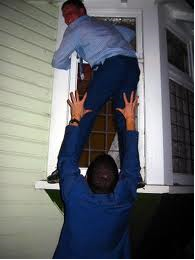Home » Verb Forms and Tenses » Modal Verbs » Modals for deduction and supposition – Past
Modals for deduction and supposition – Past
 |
|
When we are certain something happened in the past, we use the verb: must have.
For example: They must have lost their keys.
(I don’t know for sure, but I’m 99.999% certain).
When we are certain something wasn’t true or didn’t happen, we use: can’t or couldn’t have.
For example: They can’t/couldn’t have remembered to take their keys.
(I don’t know for sure, but I’m 99.999% certain).
When we are not sure but we think something was possibly true, we use: may (not) have, might (not) have, could have. We DO NOT use could not have in this case.
For example: They may/might/could have left their keys at work.
For example: They may not /might not have lost their keys.
Click on the links below to learn more about modal verbs
Modals for Offers and Requests
Modals for Suggestions and Advice
Modals for deduction and supposition – Present